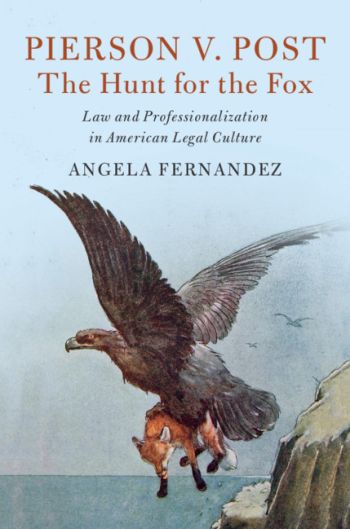
The 1805 New York foxhunting case Pierson v. Post has long been used in American property law classrooms to introduce law students to the concept of first possession by asking how one establishes possession of a wild animal.
In this book, Professor Angela Fernandez retells the history of the famous fox case, from its origins as a squabble between two wealthy young men on the South Fork of Long Island through its appeal to the New York Supreme Court and entry into legal treatises, law school casebooks, and law journal articles, where it still occupies a central place.
Professor Fernandez argues that the dissent is best understood as an example of legal solemn foolery. Yet it has been treated by legal professionals, the lawyers of its day, and subsequent legal academics in such a serious way, demonstrating how the solemn and the silly can occupy two sides of the same coin in American legal history.